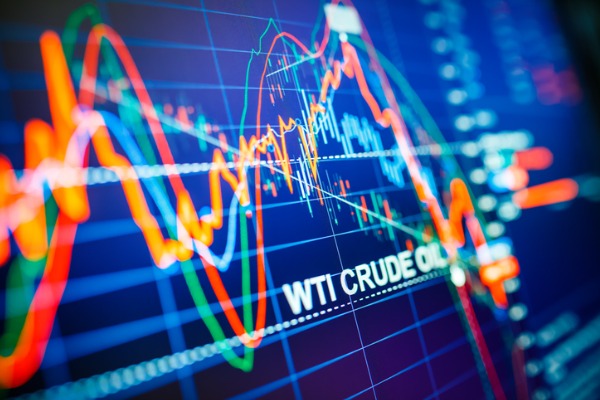Must read: oil market, UK food inflation, bitcoin, Aldi and Lidl
Our head of investment rounds up the morning's big news.
2nd January 2024 08:51
by Victoria Scholar from interactive investor

GLOBAL MARKETS
European markets have kicked off 2024 in the green, extending the positivity after last year’s gains. In 2023, Italy’s FTSE MIB outperformed with an annual increase of over 25%, while the FTSE 100 lagged, ending the year up less than 4%.
Two of the top UK stock market winners from last year, Marks & Spencer Group (LSE:MKS) and Rolls-Royce Holdings (LSE:RR.) have retained their star quality to kick off 2024, with both stocks trading near the top of the FTSE 100 index today.
- Learn more: SIPP Portfolio Ideas | How SIPPs Work | Transfer a SIPP
Oil prices are trading higher, with WTI and Brent crude both up around 1-1.5% after Iran sent a warship to the Red Sea, raising concerns about growing tensions and the possibility of supply disruptions. An expectation of stronger demand from China over the Lunar New Year holiday ahead is also supporting prices.
This week all eyes are on US jobs data, with key Jolts and ADP figures as well as the all-important non-farm payrolls report on Friday, which will provide clues as to the strength of the labour market stateside.
UK BRC INFLATION
According to the British Retail Consortium (BRC), UK food inflation dropped to an 18-month low of 6.7% in December, down from 7.8% in November. Food inflation fell for the eighth straight month with wine, port and sherry all falling in price.
The weak consumer backdrop prompted supermarkets and other shops to offer discounts and promotions over the all-important festive period, helping drive down food inflation in an encouraging sign for broader price pressures in the UK. The war in Ukraine, post-Covid supply chain issues and unexpected weather conditions have lifted food prices in the last few years. But a combination of a sluggish economy, a softening consumer, higher interest rates, cooling energy prices, and easing supply chain issues have helped to bring inflation back down closer to target, although there’s still some way to go.
These figures come ahead of the UK’s official ONS data later this month, as the Bank of England hopes to see a continued normalisation of inflation inching closer to the key 2% target so that the central bank can refrain from further tightening in 2024.
BITCOIN
After rallying over 150% in 2023, bitcoin continues its ascent. The cryptocurrency is enjoying a strong start to the year, pushing above $45,500, up over 7% already since the beginning of January. Longer term, it is up over 1,000% over the past five years. After the heavy selling in 2022, bitcoin and other cryptocurrencies have been enjoying a resurgence over the past year and it feels like the crypto winter is over with the potential for further gains in 2024.
Growing hopes that US regulators will approve a bitcoin exchange-traded fund (ETF) are providing a tailwind to the cryptocurrency. The upcoming bitcoin halving event is also creating a lot of excitement among crypto investors. Historically, bitcoin prices have picked up following a halving event.
While there are reasons to be optimistic about the outlook for bitcoin such as the potential regulatory approval of a bitcoin ETF and bitcoin halving, cryptos are notoriously volatile. While investors can make impressive gains, they can also be left nursing painful losses.
ALDI / LIDL
Aldi recorded its best festive run up, with sales rising 8% to surpass £1.5 billion for the first time in the four weeks to Christmas Eve. Friday 22 December was its busiest ever trading day, with 2.5 million customers heading to Aldi’s supermarkets for their full Christmas shop. Meanwhile, Lidl also enjoyed a strong festive season, with sales surging 12% in the four weeks to 24 December and customers increased by 4.5 million during the month.
The German discounters which are best known for their rock bottom prices, have enjoyed a stellar Christmas amid the cost-of-living crisis as price sensitive consumers trade down to Aldi and Lidl’s attractively priced offering. Also, in an attempt to keep shopping bills low, consumers have been switching away from branded to own label cheaper products, something that has also helped spur demand for Aldi and Lidl’s unbranded ranges. One Lidl champagne for example was voted better than Moet and Chandon and was recently reduced in price to under £10 a bottle versus Moet which typically costs around £36 a bottle.
The two supermarkets have intensified price competition in the UK, prompting other supermarkets to offer discounts and promotions and think of innovative ways to drive customer demand such as a renewed focus on their loyalty schemes.
These articles are provided for information purposes only. Occasionally, an opinion about whether to buy or sell a specific investment may be provided by third parties. The content is not intended to be a personal recommendation to buy or sell any financial instrument or product, or to adopt any investment strategy as it is not provided based on an assessment of your investing knowledge and experience, your financial situation or your investment objectives. The value of your investments, and the income derived from them, may go down as well as up. You may not get back all the money that you invest. The investments referred to in this article may not be suitable for all investors, and if in doubt, an investor should seek advice from a qualified investment adviser.
Full performance can be found on the company or index summary page on the interactive investor website. Simply click on the company's or index name highlighted in the article.